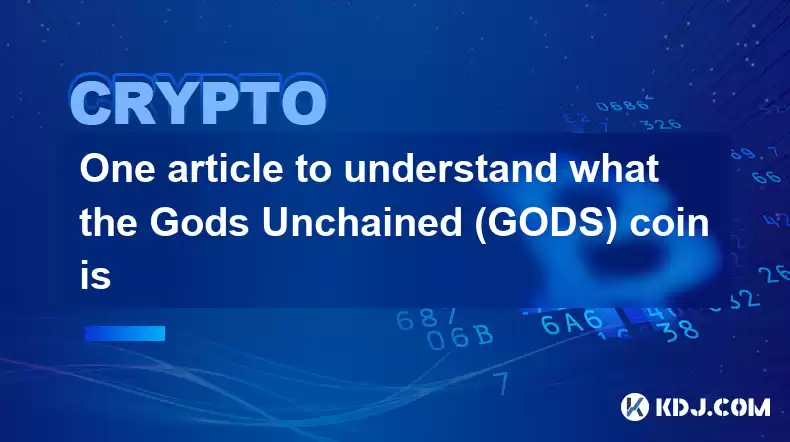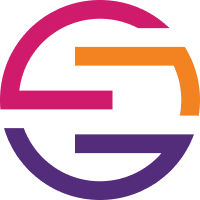-
 Bitcoin
Bitcoin $119000
-2.21% -
 Ethereum
Ethereum $4315
1.01% -
 XRP
XRP $3.151
-3.11% -
 Tether USDt
Tether USDt $0.0000
0.00% -
 BNB
BNB $808.5
-0.71% -
 Solana
Solana $175.8
-4.21% -
 USDC
USDC $0.9999
0.00% -
 Dogecoin
Dogecoin $0.2250
-3.92% -
 TRON
TRON $0.3469
1.77% -
 Cardano
Cardano $0.7818
-3.81% -
 Chainlink
Chainlink $21.47
-2.10% -
 Hyperliquid
Hyperliquid $43.30
-6.81% -
 Stellar
Stellar $0.4370
-2.84% -
 Sui
Sui $3.682
-4.40% -
 Bitcoin Cash
Bitcoin Cash $590.8
2.67% -
 Hedera
Hedera $0.2484
-5.20% -
 Ethena USDe
Ethena USDe $1.001
0.00% -
 Avalanche
Avalanche $23.10
-4.29% -
 Litecoin
Litecoin $119.2
-3.96% -
 Toncoin
Toncoin $3.409
0.90% -
 UNUS SED LEO
UNUS SED LEO $9.016
-1.29% -
 Shiba Inu
Shiba Inu $0.00001304
-3.82% -
 Uniswap
Uniswap $11.18
1.33% -
 Polkadot
Polkadot $3.913
-3.51% -
 Cronos
Cronos $0.1672
-3.08% -
 Dai
Dai $1.000
0.02% -
 Ethena
Ethena $0.7899
-4.70% -
 Bitget Token
Bitget Token $4.400
-1.23% -
 Pepe
Pepe $0.00001132
-5.93% -
 Monero
Monero $257.9
-6.44%
One article to understand what the Gods Unchained (GODS) coin is
Gods Unchained, a blockchain-based trading card game, empowers players to own their digital assets and engage in strategic battles, powered by the utility token GODS.
Dec 25, 2024 at 05:07 pm

Key Points:
- Gods Unchained is a competitive, free-to-play trading card game built on the Ethereum blockchain.
- GODS is the native utility token of Gods Unchained, used for governance, staking, and purchasing in-game items.
- The Gods Unchained ecosystem features a range of functionalities, including card collection, deck building, tournaments, and a marketplace.
What is Gods Unchained (GODS)?
Gods Unchained is a digital trading card game in which players collect and trade cards representing gods and goddesses from various mythologies. The game features strategic gameplay, allowing players to build their decks, battle against opponents, and earn rewards.
Unlike traditional trading card games, Gods Unchained operates on the Ethereum blockchain, which enables player ownership and the trading of in-game assets as non-fungible tokens (NFTs). This decentralized approach empowers users with true ownership of their digital assets, ensuring transparency and security.
Features of Gods Unchained:
- Card Collection: Players can acquire cards through gameplay, purchases, or by opening packs. Each card features unique attributes, abilities, and artwork, providing endless strategic possibilities.
- Deck Building: Utilizing the collected cards, players construct custom decks tailored to their playstyle and strategies. The diversity of cards empowers players to experiment with different combinations and discover winning formulas.
- Tournaments: Gods Unchained hosts regular tournaments where players compete for rewards and glory. Tournaments provide opportunities for players to showcase their deck-building skills and strategic prowess against skilled opponents.
- Marketplace: The in-game marketplace facilitates the trading of cards, allowing players to buy, sell, and rent their digital assets. The open marketplace fosters a robust economy within the Gods Unchained ecosystem.
GODS Utility Token:
The GODS token serves as the backbone of the Gods Unchained ecosystem, enabling various functionalities:
- Governance: GODS token holders have the power to participate in the governance of Gods Unchained. By staking their tokens, they can contribute to decision-making regarding the game's development, features, and future direction.
- Staking: To participate in governance, GODS tokens must be staked. Staking rewards participants with additional GODS tokens, providing incentives for active involvement in the community.
- In-Game Purchases: GODS tokens can be used to purchase items in the game's marketplace, such as card packs, vanity items, and other digital assets. This integration strengthens the game's economy and provides revenue streams for the game developers.
Getting Started with Gods Unchained:
- Create an Account: Visit the Gods Unchained website and create a free account.
- Install the Game: Download the Gods Unchained game client and install it on your device.
- Start Playing: Launch the game and begin exploring the world of Gods Unchained. Collect cards, build your decks, and engage in battles to earn rewards and conquer the realm of the gods.
FAQs:
- What is the difference between Gods Unchained and traditional trading card games?
Gods Unchained is built on the Ethereum blockchain, enabling players to truly own their digital assets and trade them as NFTs. This empowers players with complete control over their in-game items and ensures the security and transparency of the game ecosystem.
- How does the GODS token contribute to Gods Unchained?
GODS is the utility token of Gods Unchained, serving as a medium of exchange for in-game purchases, a means of participation in governance, and a reward for staking. The token's utility within the game's ecosystem strengthens the overall player experience and fosters a sustainable and rewarding economy.
- What are the benefits of owning GODS tokens?
GODS token holders enjoy several benefits, including governance rights, staking rewards, access to exclusive in-game content, and the opportunity to support the long-term growth and development of Gods Unchained. By participating in the governance process, token holders have a direct say in shaping the future of the game, contributing to its success and sustainability.
- Where can I purchase GODS tokens?
GODS tokens are available for purchase through various cryptocurrency exchanges.
Disclaimer:info@kdj.com
The information provided is not trading advice. kdj.com does not assume any responsibility for any investments made based on the information provided in this article. Cryptocurrencies are highly volatile and it is highly recommended that you invest with caution after thorough research!
If you believe that the content used on this website infringes your copyright, please contact us immediately (info@kdj.com) and we will delete it promptly.
- Arc Blockchain: Circle's Layer-1 Play Amidst $428 Million Loss
- 2025-08-12 20:30:13
- XRP Price: Riding the Bull Cycle Wave or Hitting a Wall?
- 2025-08-12 20:50:12
- Cloud Mining in 2025: Chasing Passive Income and High Returns
- 2025-08-12 20:30:13
- XRP Price Forecast: Can XRP Hit $8, $12.60, or Even $100? Surge Drivers Analyzed
- 2025-08-12 21:10:13
- SUI Analyst Predicts Potential 7x Setup: Don't Ignore This Crypto!
- 2025-08-12 21:50:12
- Solana Price, Meme Coins, and 100x Gains: What's the Hype?
- 2025-08-12 20:50:12
Related knowledge

How to purchase Aragon (ANT)?
Aug 09,2025 at 11:56pm
Understanding Aragon (ANT) and Its PurposeAragon (ANT) is a decentralized governance token that powers the Aragon Network, a platform built on the Eth...

Where to trade Band Protocol (BAND)?
Aug 10,2025 at 11:36pm
Understanding the Role of Private Keys in Cryptocurrency WalletsIn the world of cryptocurrency, a private key is one of the most critical components o...

What is the most secure way to buy Ocean Protocol (OCEAN)?
Aug 10,2025 at 01:01pm
Understanding Ocean Protocol (OCEAN) and Its EcosystemOcean Protocol (OCEAN) is a decentralized data exchange platform built on blockchain technology,...

How to invest in Kyber Network Crystal v2 (KNC)?
Aug 12,2025 at 05:21pm
Understanding Kyber Network Crystal v2 (KNC)Kyber Network is a decentralized liquidity hub built on the Ethereum blockchain that enables instant token...

Where can I buy UMA (UMA)?
Aug 07,2025 at 06:42pm
Understanding UMA and Its Role in Decentralized FinanceUMA (Universal Market Access) is an Ethereum-based decentralized finance (DeFi) protocol design...

What exchanges offer Gnosis (GNO)?
Aug 12,2025 at 12:42pm
Overview of Gnosis (GNO) and Its Role in the Crypto EcosystemGnosis (GNO) is a decentralized prediction market platform built on the Ethereum blockcha...

How to purchase Aragon (ANT)?
Aug 09,2025 at 11:56pm
Understanding Aragon (ANT) and Its PurposeAragon (ANT) is a decentralized governance token that powers the Aragon Network, a platform built on the Eth...

Where to trade Band Protocol (BAND)?
Aug 10,2025 at 11:36pm
Understanding the Role of Private Keys in Cryptocurrency WalletsIn the world of cryptocurrency, a private key is one of the most critical components o...

What is the most secure way to buy Ocean Protocol (OCEAN)?
Aug 10,2025 at 01:01pm
Understanding Ocean Protocol (OCEAN) and Its EcosystemOcean Protocol (OCEAN) is a decentralized data exchange platform built on blockchain technology,...

How to invest in Kyber Network Crystal v2 (KNC)?
Aug 12,2025 at 05:21pm
Understanding Kyber Network Crystal v2 (KNC)Kyber Network is a decentralized liquidity hub built on the Ethereum blockchain that enables instant token...

Where can I buy UMA (UMA)?
Aug 07,2025 at 06:42pm
Understanding UMA and Its Role in Decentralized FinanceUMA (Universal Market Access) is an Ethereum-based decentralized finance (DeFi) protocol design...

What exchanges offer Gnosis (GNO)?
Aug 12,2025 at 12:42pm
Overview of Gnosis (GNO) and Its Role in the Crypto EcosystemGnosis (GNO) is a decentralized prediction market platform built on the Ethereum blockcha...
See all articles

























































































